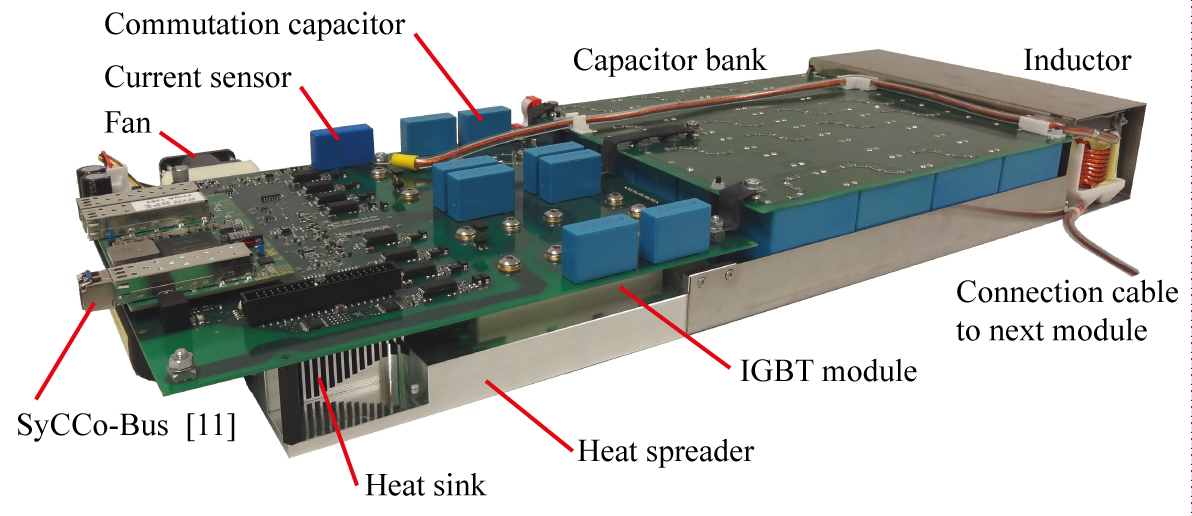Split battery energy storage: more than the just the sum of its parts
What if we told you, that splitting a 5 mega-watt-hour battery energy storage system into 24 smaller blocks, each large enough to supply over 30 households for a whole day, can improve its energy efficiency by 5%? It’s true, and it’s all in the power electronics!
Research performed in cooperation with ABB Switzerland Ltd. and the Bundesamt für Energie (BFE) shows that the power conversion chain of split-battery energy storage systems can be built over 5% more efficient than that of today’s conventional systems. At the same time, the new technologies occupy only a fraction of the space required in even the most compact state-of-the-art solutions.
The key to these improvements is managing the complexity of advanced power electronic topologies. Newly developed multi-domain optimization methods and integrated control schemes put split-battery energy storage technologies based on the modular multilevel converter within reach of the grid operators.
A corresponding research project conducted by André Hillers at the Laboratory for High Power Electronic Systems marked only the beginning. Over the course of his analyses, he discovered that the new technologies have a dormant potential: With (future) batteries able to tolerate power cycling during the charging / discharging process, the efficiency of the power conversion chain could be more than doubled. A case study conducted based on the experience with the 1MW battery energy storage pilot power plant of the Energiewerke Zürich (EKZ) has revealed that a respective system offering frequency control could benefit from annual savings of up to 7% in energy costs.
The people involved in this project are André HIllers, and ESC member, Professor Jürgen Biela. Prof. Biela is head of the Laboratory for High Power Electronic Systems (HPE). The research at the Laboratory for High Power Electronic Systems (HPE) focusses on high power converter systems including operation at medium voltages required for example in future energy distribution for renewable energy sources or in traction applications.

